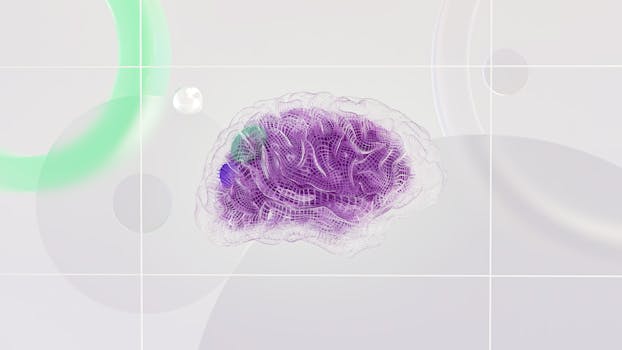What is neuroscience applications?

What is neuroscience applications?
Neuroscience applications are transforming how we approach various fields, from education to mental health and business. By understanding the brain’s functions and mechanisms, we can enhance productivity, improve learning techniques, and promote personal growth. This article dives deep into the fascinating world of neuroscience applications and how they can benefit you.
Understanding Neuroscience
Neuroscience is the scientific study of the nervous system, particularly the brain and its intricate functions. It holds significant importance as it helps us understand how our brain processes information, controls behavior, and influences our physical and mental well-being. With a better grasp of neuroscience, we can make informed decisions about enhancing our daily lives and improving productivity.
The Brain and Its Functions
The brain is a complex organ made up of various areas, each with distinct roles. For instance, the frontal lobe is crucial for decision-making, problem-solving, and regulating emotions. The temporal lobe processes auditory information and is essential for memory. The occipital lobe, on the other hand, is responsible for visual processing. By understanding these areas, we can tailor our activities to engage specific brain functions for better outcomes.
Neuroscience Research Methods
Neuroscience employs several research methods to study the brain and its functions. Techniques like Functional Magnetic Resonance Imaging (fMRI) and Electroencephalography (EEG) are commonly used. fMRI measures brain activity by detecting changes in blood flow, while EEG records electrical activity in the brain. These methods help researchers explore how the brain responds to various stimuli, ultimately leading to improved applications in multiple fields.
Practical Applications of Neuroscience
Neuroscience applications extend across a diverse range of fields, each benefitting from insights gained through research.
Neuroscience in Education
In education, neuroscience informs teaching strategies and study techniques. Educators can utilize findings from neuroscience to create environments conducive to learning. For example, incorporating spaced repetition in study methods has been shown to enhance memory retention. The Educational Neuroscience initiative aims to bridge the gap between neuroscience and educational practice, ensuring that teaching methods align with how the brain learns best. For more on this topic, the Educational Neuroscience website provides valuable insights.
Neuroscience in Business
In the business world, neuroscience applications can significantly enhance employee productivity and well-being. Understanding how the brain processes information allows companies to refine their marketing strategies and management practices. For instance, the Wharton Executive Education program offers insights on how neuroscience principles can positively impact leadership and strategic decision-making.
Neuroscience in Mental Health
Neuroscience is pivotal in understanding and treating mental health issues. By studying the brain’s functioning, researchers can identify the neurobiological mechanisms underlying mental disorders. This understanding can lead to improved treatment approaches, allowing for better management of conditions like anxiety, depression, and PTSD. The National Library of Medicine provides a comprehensive overview of neuroscience and mental illness.
Neuroscience Applications for Personal Development
Understanding neuroscience can significantly enhance personal productivity and effective study habits.
Cognitive Enhancements
By leveraging strategies based on neuroscience, you can enhance your cognitive functions. Techniques such as visualization, active recall, and mind mapping can help you grasp complex concepts more easily. Engaging in regular mental exercises, like puzzles or learning a new skill, can also stimulate brain activity and improve cognitive flexibility.
Mindfulness and Neuroplasticity
Mindfulness practices, such as meditation, have been shown to promote neuroplasticity—the brain’s ability to reorganize itself by forming new neural connections. This adaptability can improve focus, reduce stress, and enhance overall quality of life. Research indicates that mindfulness can lead to structural changes in brain regions associated with emotional regulation and stress response. To learn more about this, check out insights from the Neuroscience of Self-Improvement.
Future Trends in Neuroscience Applications
The future of neuroscience holds exciting possibilities. As technology advances, we can expect to see more innovative applications emerging.
Technological Advancements
Emerging technologies, such as artificial intelligence and machine learning, are enhancing neuroscience research. These tools can analyze vast amounts of data, uncovering patterns that lead to new insights about brain function. They also facilitate the development of personalized learning and treatment plans based on individual brain activity.
Implications for Society
The broader implications of neuroscience applications on society are profound. By integrating neuroscience into education, health, and business, we can create environments that foster productivity and well-being. The insights gained from neuroscience can guide policies and practices that enhance overall quality of life, making it a valuable field of study for years to come.
Conclusion
Neuroscience applications are paving the way for advancements in productivity, learning, and mental health. By exploring how our brains function, we can develop strategies that enhance our daily lives. Whether in education, business, or personal growth, understanding neuroscience opens doors to new possibilities. I encourage you to delve into this fascinating field and discover how it can inspire your personal development journey.